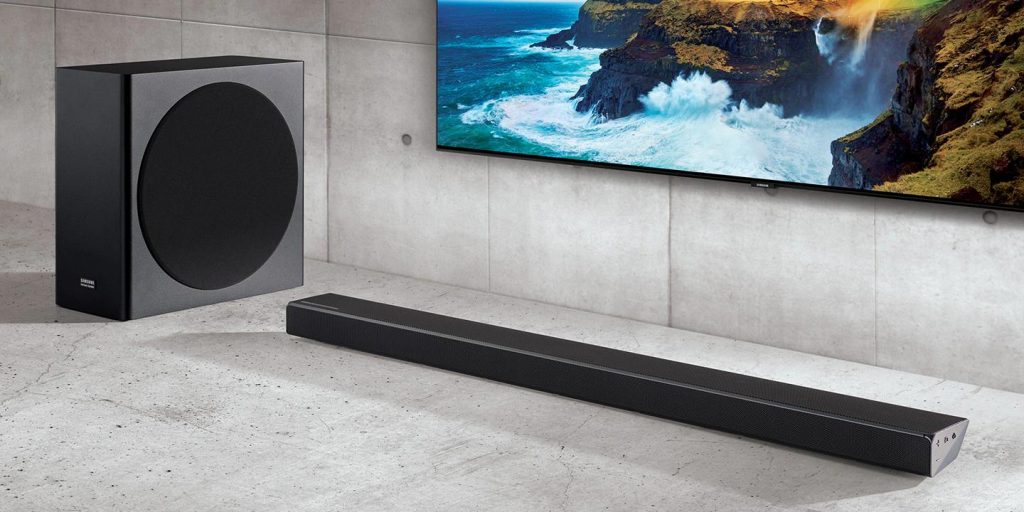From 4K to 8K, OLED, QLED and UHD, modern televisions have evolved. Image quality has become better than ever and the screens themselves have gotten thinner. The payoff is that these thin screens only have space for equally thin speakers which are simply unable to provide a truly immersive soundscape on their own. Adding a good soundbar to your home cinema setup however, will do just the trick.
So the question is, what is a good soundbar?
Well, that really depends on a number of factors, mainly the size of your budget, but also the size of the soundbar you choose, how you want to connect to it, as well as the size of the room you plan to use it in. To make things easier for you, we’ve compiled the following list of things to consider when shopping for your next soundbar.
Where will the soundbar be positioned?
Ideally, soundbars are designed to either be mounted on a wall just below your TV screen or sit on a shelf in front of the screen for optimal sound quality. Bear in mind that if positioned directly in front of your screen, the soundbar could block your remote control’s signal from reaching your TV’s receiver, however, there are workarounds for this such as an Infrared signal extender. Alternatively, you can also position the soundbar above your screen, but it won’t sound quite as good. Either way, be sure to measure your space to make sure that the soundbar you choose will fit comfortably in the chosen space.

How many channels should you pick?
The number of channels in a soundbar refers to the number of speakers contained within the bar. While this will be mostly determined by your budget, you should still bear in mind when choosing your new soundbar that more channels will provide a more immersive surround sound experience. While 2 channels will provide decent stereo sound, ideally one would like a minimum of three channels.
Consider your connectivity needs.
How do you plan to connect your soundbar to your home cinema? Most soundbars these days support multiple ways for you to connect. A few options to look out for specifically are:
- HDMI ARC – probably your easiest solution, simply connect with a single HDMI cable to your TV’s Audio Return Channel (ARC). This is an especially convenient option for multi-channel soundbars.
- Bluetooth – the favoured choice of the modern cord-cutter, many soundbars offer Bluetooth connectivity, allowing you to easily connect and stream audio from your PC, phone or tablet.
- Wi-Fi – if the soundbar you choose supports Wi-Fi you can connect it to your home Internet network to make streaming a breeze from pretty much any device connected to the network.
- Optical – an optical cord gives you the best and most reliable audio connection, but it is limited to a maximum bandwidth of 5.1 channel sound.
- USB – most soundbars currently available include a USB port, but this is mostly used for firmware updates (which nobody really does anyway). Unless you’re planning to connect a USB drive to your soundbar for audio playback, you probably don’t need this option.
Now that you know what to look for, find the soundbar that meets all of your audio requirements here: https://www.expertstores.co.za/shop/product-list/tv-_and_-audio/audio-_and_-video/soundbar
Do you need more help choosing your soundbar? Send us an email at info@expertstores.co.za, give us a call on 087 095 5722 or inbox us on Facebook or Instagram for Expert advice.









